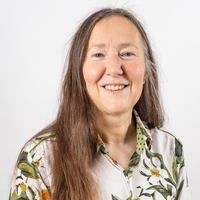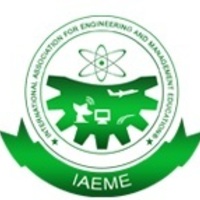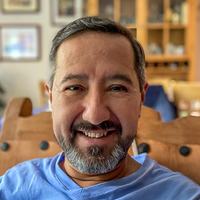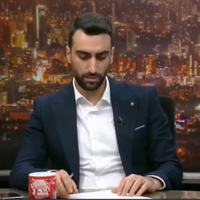
Ignatia / Inge de Waard
My main interests are MOOCs and ubiquitous, mobile online learning. As such envisioning the future of education by dreaming of an organic teaching/learning world.
I am currently researching ubiquitous MOOCs and more specifically learner interactions and self-directed learning for the Open University of the United Kingdom. Previously I engaged in research on the impact of mobile access on MOOCs for Athabasca University in Canada. And in the past I have been the eLearning coordinator and researcher working at the Institute of Tropical Medicine Antwerpen (ITM) in Belgium.
As such I am grateful to be an international speaker who has been a consultant for eLearning start-ups (South-Asia, Africa, Latin-America) in addition to the mobile and eLearning projects within ITM. Working frequently with partners from developing countries I am involved in mobile, MOOC and web-based learning projects in different low resource regions throughout the world.
I have been involved in eLearning since 1999 and I have a background in pedagogy and IT, which I combine to ensure optimal Technology Enhanced Learning for all stakeholders. I am a member of IAmLearn, the mLearnopedia content community, on the program committee of mLearn2012 and mLearn2013, member of the Advisory Committee of Online Educa Berlin, review and committee member of IADIS, member of the eLearning learning content community, author for Learning Solutions magazine, and member of the European Distance and eLearning Network.
I am currently researching ubiquitous MOOCs and more specifically learner interactions and self-directed learning for the Open University of the United Kingdom. Previously I engaged in research on the impact of mobile access on MOOCs for Athabasca University in Canada. And in the past I have been the eLearning coordinator and researcher working at the Institute of Tropical Medicine Antwerpen (ITM) in Belgium.
As such I am grateful to be an international speaker who has been a consultant for eLearning start-ups (South-Asia, Africa, Latin-America) in addition to the mobile and eLearning projects within ITM. Working frequently with partners from developing countries I am involved in mobile, MOOC and web-based learning projects in different low resource regions throughout the world.
I have been involved in eLearning since 1999 and I have a background in pedagogy and IT, which I combine to ensure optimal Technology Enhanced Learning for all stakeholders. I am a member of IAmLearn, the mLearnopedia content community, on the program committee of mLearn2012 and mLearn2013, member of the Advisory Committee of Online Educa Berlin, review and committee member of IADIS, member of the eLearning learning content community, author for Learning Solutions magazine, and member of the European Distance and eLearning Network.
less
Related Authors
IAEME Publication
Iaeme
Fabio Neves da Rocha
Edinburgh Napier University
Dr G Kamalakar
Dr. B.R. Ambedkar Open University
René Matlovič
Slovak Academy of Sciences
Germán Álvarez-Mendiola
Centro de Investigacion y Estudios Avanzados del IPN
Alejandro Artopoulos
Universidad de San Andres - Argentina
InterestsView All (6)










Uploads
PhD thesis by Ignatia / Inge de Waard
This research investigated the informal learning of 56 adult learners with prior online experience, engaging in individual and/or social self-directed learning using any device to follow a FutureLearn course. Literature from MOOCs, mobile and informal learning provides scientific support, in addition to literature clarifying the rationale for choosing self-directed learning compared to similar learning concepts (self-regulated, self-determined and self-managed learning). The participants of this study voluntarily followed one of three FutureLearn courses that were rolled out for the first time by the end of 2014. Data were collected at three different stages: an online survey (pre-course), self-reported learning logs (during the course), and semi-structured one-on-one interviews (post-course). The data were analysed using Charmaz’s (2014) method for constructing a grounded theory. The analysis included memo-writing, and involved open coding, line-by-line coding, and focused coding in order to construct a grounded theory that provided insights into the self-directed learning experiences of FutureLearn participants.
By getting a better understanding of the self-directed learning in FutureLearn courses, additional insights are gained to enhance informal learning, instructional design, and to contextualize and personalise learning within FutureLearn courses to create an increasingly meaningful learning experience.
My uploaded papers by Ignatia / Inge de Waard
The paper delves into the financial pressures faced by universities, prompting them to seek innovative solutions for survival and growth. By forming networks and ecosystems, universities can leverage collective expertise and resources, enhancing their ability to provide high-quality education and research. The role of these collaborations in fostering innovation, improving operational efficiency, and addressing societal challenges is critically examined.
Furthermore, the paper discusses the implications of these developments for the future of higher education. It highlights the potential for increased interdisciplinary research, enhanced student mobility, and the creation of more flexible and adaptive educational models. The integration of digital technologies and artificial intelligence in these networks is also explored, emphasizing their role in facilitating communication, collaboration, and data-driven decision-making.
In conclusion, the paper argues that the future of universities lies in their ability to adapt to changing environments through strategic collaborations and the adoption of innovative practices. By embracing these changes, universities can continue to play a pivotal role in shaping the knowledge economy and addressing global challenges.
Teachers in formal education provide the learning path towards learning objectives and learning outcomes that need to be achieved. In order for teachers to deliver quality in both face-to-face and online learning environments, it is pivotal that they experience and understand MOOC options. Overall the paper suggests that teachers need to be informed about MOOC diversity to enable them to perform in the MOOC learning and teaching environment. This will allow teachers to overcome their own doubts, the complexities that come along with these new online environments, and provide them with the confidence and insights needed to use MOOC for their own teaching goals.
This chapter outlines the contemporary challenges that are still affecting mLearning, and stressing the need to embed mLearning in the overall learning environment. From there the author looks into the learning opportunities that BYOD, mobile social media, mobile apps and mobile sensors offer. Each of these elements is linked to research or corporate knowledge. These simple mLearning options are also screened for their learning additions, with practical, real life examples. Each of these mobile options offers new educational options to improve and broaden contextualized, meaningful learning. Optimizing and embedding these simple mLearning tools for qualitative learning is essential to meet contemporary training and learning demands.
instructional designers and subject matter experts (SMEs)
to balance gender and ethnicity categories from inception of
mobile courses throughout the complete design of the
course. This instrument can also be used to analyze the
matter of gender and ethnicity in all Technology Enhanced
Learning courses.
Los profesores de educación formal proporcionan la ruta de aprendizaje hacia los objetivos y resultados de aprendizaje que deben alcanzarse. Para que los profesores puedan ofrecer calidad, tanto en entornos de aprendizaje presencial como de aprendizaje en línea, es fundamental que ellos experimenten y entiendan las opciones de los MOOC. En general, este artículo sugiere que los profesores necesitan estar informados sobre la diversidad de los MOOC, para poder desempeñarse en este entorno de aprendizaje y enseñanza. Esto permitirá a los docentes superar sus propias dudas y las complejidades que vienen junto con los nuevos entornos en línea, proporcionándoles la confianza y los conocimientos necesarios para incluir los MOOC en sus propios objetivos de enseñanza.
This research investigated the informal learning of 56 adult learners with prior online experience, engaging in individual and/or social self-directed learning using any device to follow a FutureLearn course. Literature from MOOCs, mobile and informal learning provides scientific support, in addition to literature clarifying the rationale for choosing self-directed learning compared to similar learning concepts (self-regulated, self-determined and self-managed learning). The participants of this study voluntarily followed one of three FutureLearn courses that were rolled out for the first time by the end of 2014. Data were collected at three different stages: an online survey (pre-course), self-reported learning logs (during the course), and semi-structured one-on-one interviews (post-course). The data were analysed using Charmaz’s (2014) method for constructing a grounded theory. The analysis included memo-writing, and involved open coding, line-by-line coding, and focused coding in order to construct a grounded theory that provided insights into the self-directed learning experiences of FutureLearn participants.
By getting a better understanding of the self-directed learning in FutureLearn courses, additional insights are gained to enhance informal learning, instructional design, and to contextualize and personalise learning within FutureLearn courses to create an increasingly meaningful learning experience.
The paper delves into the financial pressures faced by universities, prompting them to seek innovative solutions for survival and growth. By forming networks and ecosystems, universities can leverage collective expertise and resources, enhancing their ability to provide high-quality education and research. The role of these collaborations in fostering innovation, improving operational efficiency, and addressing societal challenges is critically examined.
Furthermore, the paper discusses the implications of these developments for the future of higher education. It highlights the potential for increased interdisciplinary research, enhanced student mobility, and the creation of more flexible and adaptive educational models. The integration of digital technologies and artificial intelligence in these networks is also explored, emphasizing their role in facilitating communication, collaboration, and data-driven decision-making.
In conclusion, the paper argues that the future of universities lies in their ability to adapt to changing environments through strategic collaborations and the adoption of innovative practices. By embracing these changes, universities can continue to play a pivotal role in shaping the knowledge economy and addressing global challenges.
Teachers in formal education provide the learning path towards learning objectives and learning outcomes that need to be achieved. In order for teachers to deliver quality in both face-to-face and online learning environments, it is pivotal that they experience and understand MOOC options. Overall the paper suggests that teachers need to be informed about MOOC diversity to enable them to perform in the MOOC learning and teaching environment. This will allow teachers to overcome their own doubts, the complexities that come along with these new online environments, and provide them with the confidence and insights needed to use MOOC for their own teaching goals.
This chapter outlines the contemporary challenges that are still affecting mLearning, and stressing the need to embed mLearning in the overall learning environment. From there the author looks into the learning opportunities that BYOD, mobile social media, mobile apps and mobile sensors offer. Each of these elements is linked to research or corporate knowledge. These simple mLearning options are also screened for their learning additions, with practical, real life examples. Each of these mobile options offers new educational options to improve and broaden contextualized, meaningful learning. Optimizing and embedding these simple mLearning tools for qualitative learning is essential to meet contemporary training and learning demands.
instructional designers and subject matter experts (SMEs)
to balance gender and ethnicity categories from inception of
mobile courses throughout the complete design of the
course. This instrument can also be used to analyze the
matter of gender and ethnicity in all Technology Enhanced
Learning courses.
Los profesores de educación formal proporcionan la ruta de aprendizaje hacia los objetivos y resultados de aprendizaje que deben alcanzarse. Para que los profesores puedan ofrecer calidad, tanto en entornos de aprendizaje presencial como de aprendizaje en línea, es fundamental que ellos experimenten y entiendan las opciones de los MOOC. En general, este artículo sugiere que los profesores necesitan estar informados sobre la diversidad de los MOOC, para poder desempeñarse en este entorno de aprendizaje y enseñanza. Esto permitirá a los docentes superar sus propias dudas y las complejidades que vienen junto con los nuevos entornos en línea, proporcionándoles la confianza y los conocimientos necesarios para incluir los MOOC en sus propios objetivos de enseñanza.
This chapter puts the Tech Dandy in the spotlight, and shares how to inspire other learners to become experienced Tech Dandies and learn at the speed of light while always looking cool, collected and calm. The Tech Dandy has a natural charm to him or her, and uses tech in a suave, organic way to satisfy an ever present learning desire. Leisure learning is a way of life, it is an Art. But becoming a charismatic leisure learner, a real Tech Dandy, demands intelligence, planning, digital skills, gallant communication, and most of all an in-depth understanding of apps.
The book can be found here http://www.amazon.com/MOOC-YourSelf-Non-Profits-Communities-ebook/dp/B00CDVZ2AW/ref=la_B00CE8VHVC_1_1?ie=UTF8&qid=1369918048&sr=1-1
Through the development of accessible and standardized mobile content on ART we can reach many more HCWs in the field. Although standardization of mobile content is only in its infancy, we have applied the guidelines for mobile content development of the Mobile Web Initiative. This has resulted in increased accessibility of the CME modules, minimalized download size of the content and enabled us to reach as many different mobile cell phones as possible. The cost of downloading content and enabling cheaper cell phones to connect to the CME modules were crucial in opening up the CME modules for HCWs in developing countries. In addition to this approach, we have been developing mobile multimedia content as well, anticipating future mobile applications in developing countries.
Because the CME modules were integrated in a bigger educational portal, it had and has a beneficial result on the combined knowledge exchange of that portal. Mobile CME modules also contribute to the body of knowledge sharing and capacity building in developing countries.
behind Opening up Education, the resulting initiative of the OpenupEd.eu MOOC platform, and takes this as a starting
point to look at potential challenges for developing MOOCs that include vulnerable learner groups. In order to align the
future conceptualization of MOOCs with the vision and philosophy of Europe, potential tensions of contemporary and
future education are listed. The current dichotomy of xMOOC and cMOOC are used to mark some of the unexplored MOOC
territory. Practical answers to contemporary, ICT-supported educational challenges are provided as options to fuel the debate.
The challenges and options for future online education initiatives are based on insights and ideas of international scholars and
researchers reflecting on potential barriers for learners and online education. This paper aims to stimulate discussion of the
potential for new educational technologies to ensure social inclusion for virtual and physical vulnerable learner groups.